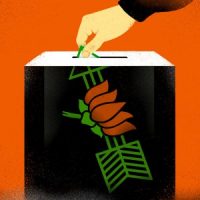
India: Assassinating Dissent
Gauri Lankesh was the editor of a weekly tabloid published in Kannada, the main language of the southern Indian state of Karnataka. She was murdered on the fifth of September at the gate of her house in Bangalore, shot in the head and chest at close range. Her killers got away on motorcycles. This gangland-style assassination of a journalist would have made a stir in any case, but coming as it did after a series of political murders, it resonated across India and beyond its borders.
From the moment she died, the press reported her death not as an individual event but as the fourth in a sequence of assassinations; to the names Narendra Dabholkar, Govind Pansare, and M.M.… Seguir leyendo »

